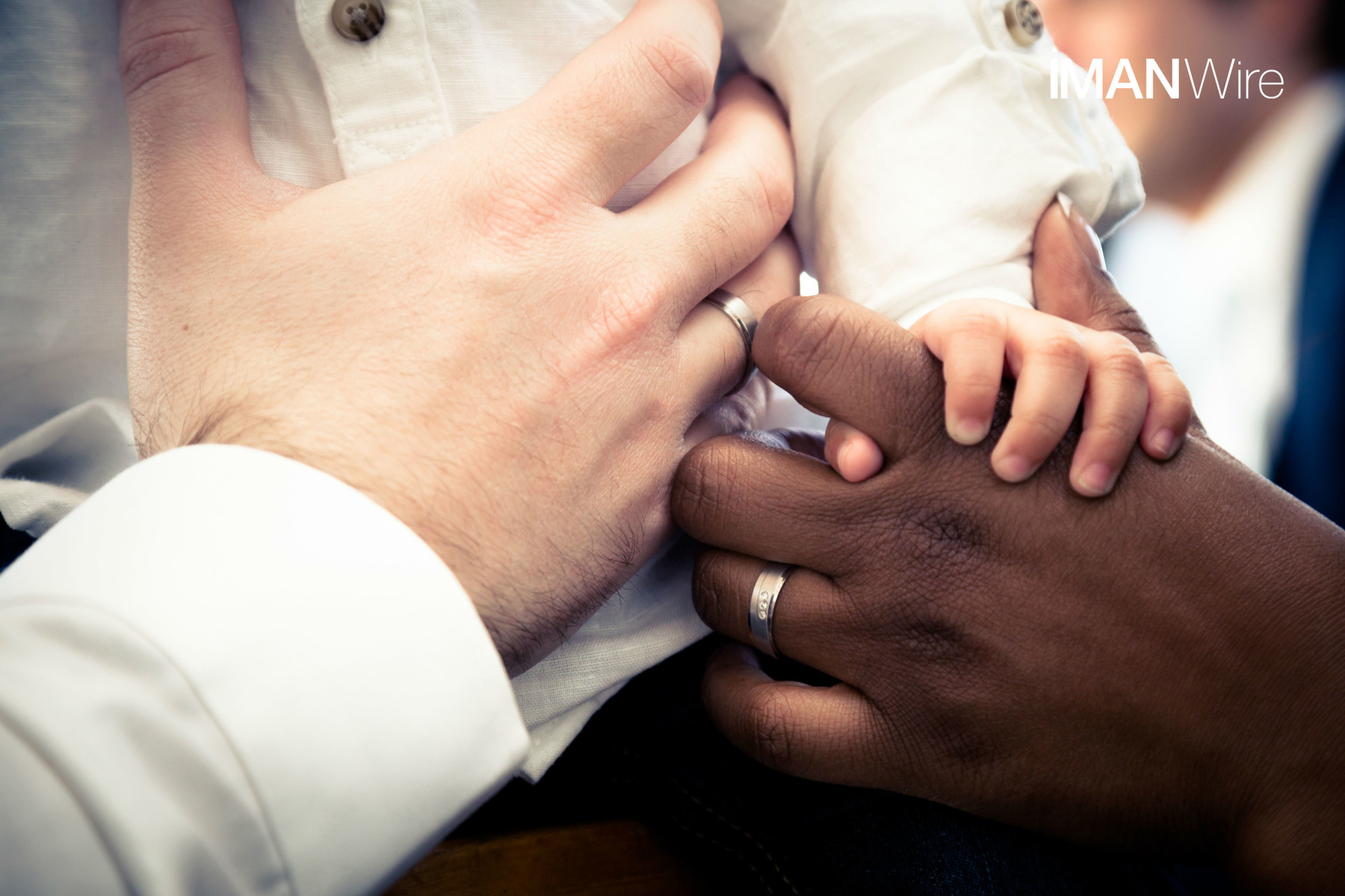‘Interracial’ Marriage in the Prophetic Era

The love of the Prophet ﷺ and his tradition should be enough for our community to at least break the taboo of interracial marriages among certain pockets of American Muslims.
In a recent Islamic conference in Michigan, I received two questions relating to interracial marriage during the question and answer section. This topic, which I have counseled numerous persons about, seems to be a growing option for American Muslims and undoubtedly a concern for many as well. The issues surrounding interracial marriages are indeed complex. Many Muslims who immigrated to the West have a hard time reconciling the idea of such potential unions which are perceived to threaten the possibility of their grandchildren losing their cultures and concerns over possible sons and daughters in laws and their families being unfamiliar and even disrespectful about their norms and mores. For African American Muslim women, who perhaps face the most daunting task out of any group of Muslim women in finding mates due to a shortage of single suitable African American Muslim men, compounded by the aversion to blackness that too many non-Black Muslims hold relating to standards of beauty, the pool of marriageable Muslims becomes even more decreased when African American Muslim men marry non-African American Muslim women or marry Christian women. Thus, the concerns that some Muslims hold relating to interracial marriages inside of our community should not all be chalked up as based in racial animus.
There is nothing wrong with Muslims looking for mates firstly within their own ethnic groups. Having preferences in and of themselves also do not make those holding them to be racists, though standards of beauty or suitability can be implicitly biased, shaped by broader historical and societal factors. Parents having such preferences in and of themselves are also not clear signs of ethnic bigotry. The Prophet (prayers and peace be upon him and his family) stated, “A woman can be married for four [reasons]: Her wealth, her family status, her beauty and her deen, so select deen [as most important] that you may be blessed.” An-Nawawi stated in his commentary on this tradition that the Prophet ﷺ was speaking to the people based upon the customs of what they looked for relating to marriage.1 Based upon these, it is not blameworthy to be inclined to marry someone firstly within one’s culture or for parents to have that desire for their children to seek to marry based upon families known to them which usually has some sort of village or ethnic connection. The problem comes when deen is relegated to culture, or if people hold animosity or try to block others from getting married simply because of ethnic or cultural differences. Thankfully, the Prophetic tradition sheds light on this subject for us.
In the Prophetic era, we can firstly look to the personal example of the Prophet ﷺ in how he dealt with this issue. His wife Safiyah bint Akhtab (may Allah be pleased with her) came from Bani Nadir, a Jewish tribe.2 Hence the Prophet ﷺ was in a type of inter-ethnic marriage. Thus, we cannot say that such unions are inherently blameworthy when our Prophet ﷺ was in a lawful and loving relationship with a lady from a Jewish tribe. Moreover, she was honored by Allah (Mighty & Sublime) as having the title of “Mother of the Believers.”
Regarding the Sahabah, there were several of them who were in inter-tribal or inter-ethnic marriages. Moreover, some of these marriages were specifically arranged by the Prophet ﷺ. In mentioning the permissibility of such marriages, Imam Zayd bin Ali bin al-Husayn bin Ali bin Abi Talib (may Allah’s blessings be upon them) made note of some of the Sahabah who were in such unions:
Certainly, Zayd bin Harithah, a former slave, married Zaynab bint Jahsh, a lady from Quraysh. Bilal married Halah bint ‘Awf, the sister of Abdur Rahman bin ‘Awf [who was the richest of the Sahabah]. Zurayq, a man freed from slavery by the Messenger of Allah married ‘Amrah bint Bishr bin Abi ‘Al-Aws bin Umayyah. Abdullah bin Razah, a man freed from slavery by Mu’awiyah, married bint ‘Amr bin Hurayth. Ammar bin Yassir married the sister of ‘Amr bin Hurayth. Abu Mijdham bin Abi Fakihah married a lady from Bani Zuhrah.3
Besides the Prophet ﷺ arranging Zayd bin Harithah’s marriages to Zaynab bint Jahsh and later to Barakah al-Habashiyyah (may Allah be pleased with them), some of the other inter-tribal marriages arranged by him include:
Al-Miqdad bin ‘Amr to Duba’a bint az-Zubayr, the daughter of the Prophet’s paternal uncle4
Usamah bin Zayd to Fatimah bint Qays al-Qurashiyyah5
Sa’ad al-Aswad to bint ‘Amr bin Wahb6
Julaybib to a lady from the Ansar7
The Prophet ﷺ knew the qualities of the men which he sought out marriage for on their behalf. In the process of doing so, he was taking a step in dismantling the tribal chauvinism of the Hijazi Arabs as it relates to whom their children could marry. He encouraged parents to deprioritize tribal affiliation and social class in favor of spiritual virtue. Thus, the Prophet ﷺ instructed, “If someone comes to marry and you are pleased with his deen and his character, then marry him. If not, there will be chaos and widespread corruption in the earth.”8
There is no one cookie-cutter answer when it comes to two persons who are willing to get involved in an interracial marriage. Factors such as impact on immediate family members, children of previous marriages if divorcees are involved, and conflicting cultural expectations must be carefully taken into account besides other general matters which all potential couples of the same ethnicity need to think through. In saying that, inter-ethnic marriages are not only something that the Prophet ﷺ encouraged in selected cases but also participated in himself. The love of the Prophet ﷺ and his tradition should be enough for our community to at least break the taboo of interracial marriages among certain pockets of American Muslims, especially given the growing number of Muslims who are seeking marriage and finding difficulty meeting upright mates within their own localities and ethnic groups.
May Allah (Mighty & Sublime) soften our hearts, purify us of any racism and colorism and assist those looking for suitable mates whether those are from their own cultures or not. Ameen.
1. An-Nawawi, Sharh an-Nawawi ‘ala Muslim, No. 1466
2. Ash-Shajari, Kitab Amali al-Ithnaniyyah, Page 324
3. Zayd bin Ali, Musnad al-Imam Zayd, Page 275
4. Al-Baghawi, Mu’jam as-Sahabah, No. 2221
5. Muslim, Sahih Muslim, No. 1480
6. Ibn al-Jawzi, Tanwir al-Ghabash fi Fadl as-Sudan wa al-Habash, Pages 136 - 137
7. Abd ar-Razzaq as-San’ani, al-Musannaf, No. 10086
8. At-Tirmidhi, Sunan at-Tirmidhi, No. 1084; Abu al-Hasan al-Hanafi, Hashiyah as-Sindi ‘ala ibn Majah, No. 1967
Activism Related Articles



Why We Must Recapture Scholarly Discourse from Extreme Bloggers
One cannot deny the move towards rhetoric and practice in the Western Muslim community that is more liberal, reformist, and progressive, but the extreme position some have taken in response to it is not only harmful, ineffective, and unwise, but decidedly un-Islamic.